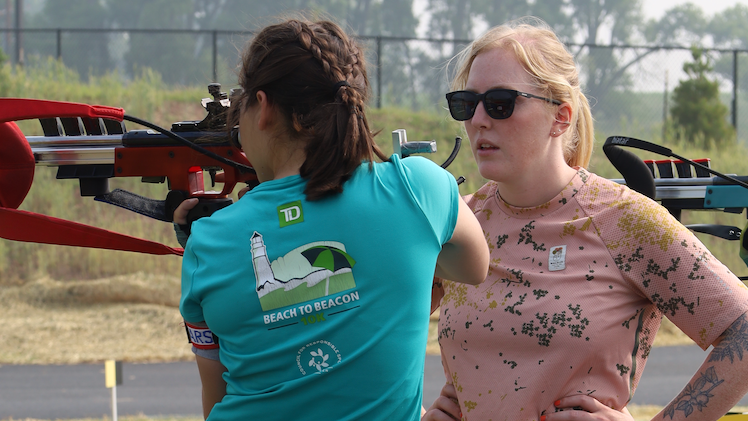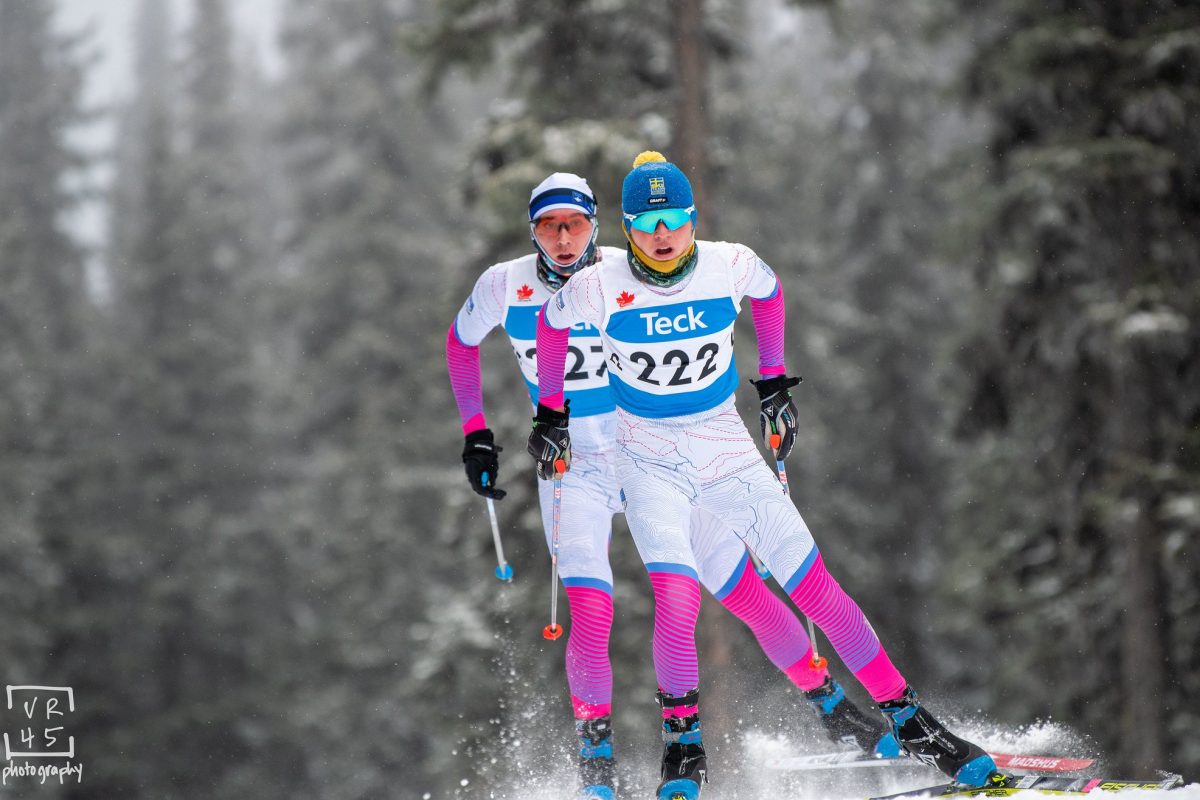
Mistakes can be a powerful motivator.
In Sunday’s 12.5 k mass start in Antholz, Italy, the two biathletes with the fastest course times were the ones who really, desperately wanted to make up for errors in the very first shooting stage of the day. In that prone stage, both and Darya Domracheva of Belarus and Kaisa Makarainen of Finland – currently ranked second and third in the world, respectively – missed two shots.
In a mass start, missing even one shot in the initial stage can be disastrous. While there aren’t always attacks early, being off the back – way off the back – while the rest of the field coasts along, feeding off each other’s momentum, is decidedly difficult.
After completing their required penalty loops, Makarainen and Domracheva sat in 25th and 26th in the 30-woman field, 50 seconds behind the leaders. The pair set to work, turning in the fastest times on the second lap.
After that charge towards the front, Makarainen was again stymied, missing a total of five shots over four bouts on the range. Despite skiing the second-fastest time of the day, she was unable to move up higher than 11th place.
Domracheva, however, made the effort part of a longer, steady ascent through the pack. After cleaning the second prone stage, she had improved to tenth. By midway through the third lap, she had moved into third.
“I think that some bad situations like this make me stronger and give me more motivation,” Domracheva later said in a press conference.
As Germany’s Magdalena Neuner and Slovakia’s Anastasiya Kuzmina followed the course out of the woods and wound their way through open fields and past a rustic alpine cabin, Domracheva ditched the chase pack and tried to cut into their lead, reducing the deficit to 21 seconds by the time she reached the crowded area surrounding the stadium.
All three women cleaned, although Neuner lost a few seconds when her rifle jammed and she had to pause to remove a bullet. In the next kilometer, Domracheva cut another seven seconds out of the lead. By they time they hit the shooting mats, the Belorussian was only six seconds behind – the leaders hadn’t even started shooting.
Spending so much energy chasing could have tired Domracheva, and the big question was whether she would be punished for her efforts in the final standing shoot, when athletes’ legs turn wobbly and their shots can become erratic.
“It was just a fight between me and my targets, nothing more,” Domracheva said of the effort. “It is easy to say this, but hard to do.”
Still, she managed to clean, and instead it was the leaders who choked. Kuzmina missed one shot and Neuner two. While they headed to the penalty loop, Domracheva took off, her victory all but certain.
The next five athletes also missed shots, meaning that Kuzmina could ski to second and Neuner to third despite their late mistakes.
For Kuzmina, who won the sprint at the 2010 Olympics but has not impressed so far this year, the podium finish was an important confidence boost as the season progresses towards World Championships.
“It is unbelievable for me to be here,” she said in the press conference. “Today was good test for my shape. It know it is possible to fight with these strong women… I hope that I can come back for the rest of the season.”
Still, the happiest of all was Domracheva, whose move from 26th to first was impressive and unexpected.
“Antholz is a very good place for me,” she said. “It’s perfect for my technique.”
* * *
A single North American woman made the 30-woman field: Susan Dunklee was handed her first-ever mass start position after finishing 17th in Thursday’s sprint. By doing so, she became the first American woman this season to earn the honor.
“I am excited for the mass start!” she wrote in an e-mail the morning of the race. “It will be a good learning experience for me, an opportunity to practice patience during a race.”
Dunklee did just that; in the first loop, the American, who is capable to turning in top splits on her skis, relaxed in the middle of the pack. Despite the excitement that accompanies a mass start, she was calm on the shooting range and was one of just eleven women to clean the initial stage. She left the range in ninth.
“As for sitting in the top ten on the second lap: I figured I’d give my parents a reason to get nervous back home,” she joked after the race. “They like to watch the instant results.”
After that, Dunklee’s race became a roller coaster ride. She missed two shots in the second stage, dropping to 23rd, but then cleaned the third stage and moved back into the top 20.
Through it all, she stayed focused.
“The crowd was big and loud, but it felt like tunnel vision during race,” Dunklee said. “The world consisted of the track, the range, and the competitors around me.”
In the final stage, her luck took another dive when she missed a devastating three shots.
“The last stage certainly could have gone better, but I’m happy with where my head was while I was shooting it,” she told FasterSkier. “I was not over-thinking things or worrying about people around me.”
After leaving the range in 28th, she passed a flagging Katja Haller of Italy and moved up to 27th by the finish.
“I finished at my bib number and I can’t complain,” she said of the result.
All in all, despite the disastrous final shooting stage, Dunklee found plenty of things to be positive about in the race – mainly, how she dealt with the added stress of the format, which is rarely contested in the U.S. and only several times a year on the World Cup.
“It’s a great feeling to have cleaned two stages under that head-to-head pressure, the first one being especially important for maintaining a good place,” she said. “I felt relaxed on skis for almost the entire race- it helps me to have people to ski behind.”
As for capitalizing on those two stages that she did clean?
“Another time,” she wrote.



